Marquee Quotes
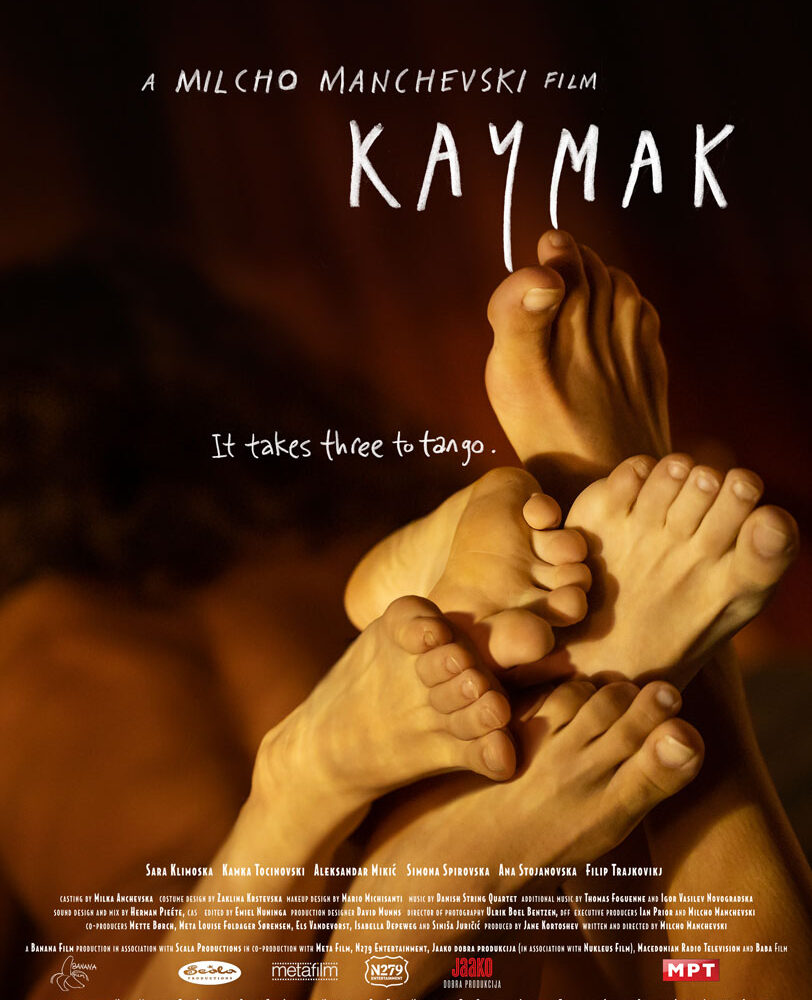
KAYMAK
“[A] unique, tragi-comic experience”
(Projektor/A Good Movie to Watch)
“A distinct directorial voice… the courage to be daring”
(ODG Magazine)
“Erotic, satirical and sometimes hilarious”
(Tomomi Katsuta, Hitocinema Mainichi)
“Masterful… one the rare contemporary artists in the world who passionately explore the human condition… a piece of art that transcends pure, unrestrained emotion that reaches deep”
(Marina Kostova, SDK.MK)
“Masterful”
(Sotir Trajkov, Telma TV)
“A cross-section of our today, a reflection in the mirror which should be unpleasant to behold; if we were we not vain and egocentric the reflection would have not disturbed us, a reflection which is neither idealized, nor banalized, but is rather merciless.”
(Zlatko Gelevski, Videologija)
“Milcho Manchevski is a visionary magician … He is a world name that has long surpassed the Balkans … When we talk about Manchevski, something moves us inside – a pleasant feeling that he is also “ours” (belonging to this cultural and geographical region), not just belonging to the world … Of the world filmmakers, Manchevski is among the Top 10, if not the Top 5, of directors whose entire body of work has been presented during the Sofia Film Fest years, just like Takeshi Kitano, the Kaurismaki brothers, like Mahmalbaf …”
(Tsvetan Tsvetanov, Sofia Culture)
“Manchevski imbues Kaymak with more meaning than a mere sex romp, exploring both the imperative to parent and the elastic strictures of of monogamy… The performances in Kaymak are all excellent… The characters have lots of sex, both joyously kinky and cringingly transgressive. It gets very funny, and Manchevski even drops in a delicious nod to the Spaghetti Westerns of Sergio Leone.”
(Movie Gourmet)
“Manchevski is an artist with a fine sense for the hidden detail in “this unexplained world”… He loves the game, but not the frivolous game, but the one that requires to “get to work” (in his own words) to authentically recreate its spirit on the screen…”
(Tsvetan Tsvetanov, Sofia Culture)
“Once again Manchevski creates moments of great emotional and plastic beauty, with gorgeous photography that manages to maintain formal unity, whether in the comic or dramatic register. The result is an extremely human and beautiful film, but also one that is sincere and raw. One more example of the great cinema of Milcho Manchevski.”
(Laxante cultural magazine, Portugal)
“Kaymak is almost an anagram of Mothers…”
(Tsvetan Tsvetanov, Sofia Culture)
“Two contiguous families, very different from each other, grappling with unexpected life developments between infidelity and the search for a child. BOLD.”
(Puglia Eccellente)
“Although different from each other, his films have the potential to make up a larger film, where the separate “parts” exist and communicate. Thus the Skopje traffic in Shadows (2007) is reflected in the second and third parts of Willow (2019) or in Kaymak (2022) as in some surrealistic novel, that has emerged from the pen of some Murakami (Haruki, or even Ryu); the times echo from one movie to another, introducing us to a much more detailed picture of the world we live in; the Tower of Babel of local dialects and extinct languages gives us that sound that the modern film industry seems to have forsaken …”
(Tsvetan Tsvetanov, Sofia Culture)
“The experiment works to such an extent that the two will rent an apartment to fictitiously duplicate a married life. The universe of the couple and its possibilities are also explored in the subsequent Kaymak by Milcho Manchevski, a bold and contemporary work that describes the life and choices of two couples very different from each other, in terms of age and socio-economic condition, but united by the contiguity of respective homes. A story of feelings and attractions that is not afraid to deal with uncomfortable topics such as human trafficking and surrogacy. ”
(Bari Film Festival)
“Master of geometry of the naked human body, without it being the basis of his films, Manchevski also creates some of the most beautiful erotic scenes in contemporary European cinema – whether in the minor ghost key of “Shadows”, or in an almost-comedic plan in “Kaymak”… It doesn’t really matter, because we’re talking here about absolute values.”
(Tsvetan Tsvetanov, Sofia Culture)
“KAJMAK sadrži izrazito kritičan ton usmeren prema kapitalizmu divljeg tipa, sa primerom neverovatne bahatosti u gradnji Skoplja, bez ikakvog plana, ukusa i osetljivosti za urbano razuman i ekološki prihvatljiv razvoj. Mančevski je u nizu svojih filmova, gde se urbano i ruralno (folklorno, prirodno, organsko, iskonsko) dodiruju, sudaraju ili presecaju, a na štetu ovog drugog, pokazao senzibilitet i inteligenciju, vizuelnu i narativnu, kakvu na ovim našim ex-ju prostorima nema niko.”
(Goran Jovanović, filmovipreporuke.com)
“Many things in his films are just like this: small, fleeting, but cutting into our consciousness forever – echoes of a song on the radio in a noisy city; flashes revealing long-lasting truths about man and humanity; characters as eternal (as they are often revealed to us in different times and eras), as dynamic for interpretation. He lives with his characters without manipulating them. He leaves them to introduce themselves (“I’m a carpenter – like Jesus with tits,” as one of his characters says), he believes in their development from characters written on paper to complex characters, something are increasingly rare to see in cinema today. Even after a film is over, he gives his characters the charge to continue to live in the mind of the viewer in a larger meta-film.”
(Tsvetan Tsvetanov, Sofia Culture)
“Antagonizmi dva para prikazani su ne samo kroz njhove međusobne/komšijske sukobe, već takođe kroz predstavljanje klase, načina života, ali i pristupa koji svakog od njih vode ka ovom dvostrukom maison à trois […]. Naličje dve neobične ljubavne priče jesu antagonizmi makedonskog društva, ali i Balkana u celini, koji osciliraju između večitih dihotomija bogatih i siromašnih, modernosti i tradicije, urbanog i ruralnog, zapada i istoka. Od klasičnih tropa Balkana, priča se u segmentima dotiče građevinske mafije, političke korumpiranosti, verskog fanatizma i populističke religioznosti, ali i neinhibirane seksualnosti.”
(Iva Lekovic, Filmoskopija.rs)
“A rare example of a creator who, in the cynical world we live in, remains primarily a humanitarian, without becoming less rock and roll”
(Tsvetan Tsvetanov, Sofia Culture)
“[Kaymak has] much wider implications […] some anthological sequences”
(Observator Cultural)
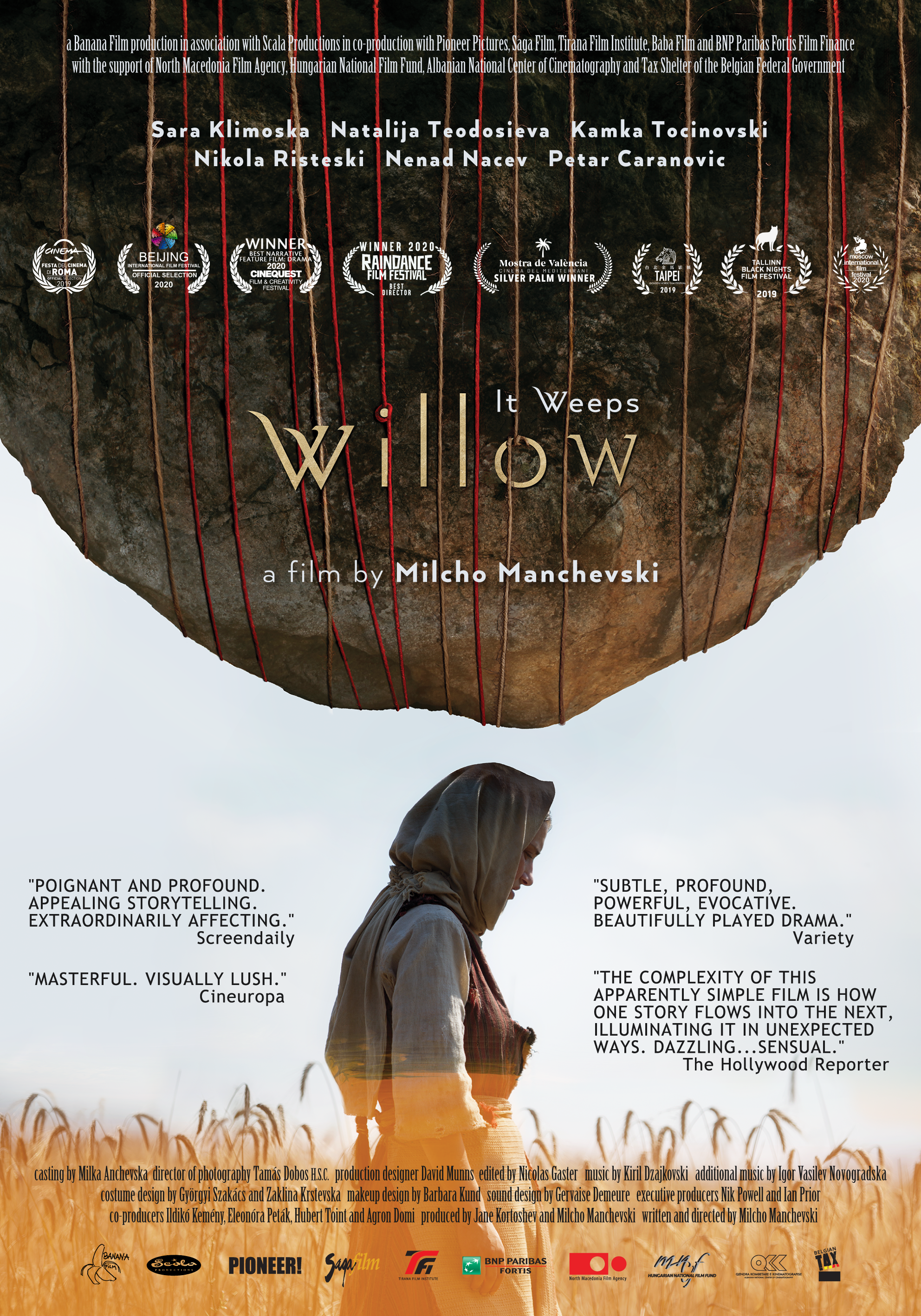
WILLOW
“Outstanding”
(WAMC’s Audrey Kupferberg)
“One of those films that feels casual when you watch it, but digs deep and remains, both poignant and profound. Appealing storytelling … Extraordinarily affecting.”
(Screen International)
“Subtle, profound…Three stories of Macedonian motherhood echo across eras in Milcho Manchevski powerful, evocative, beautifully played drama.“
(Variety)
“The complexity of this apparently simple film is how one story flows into the next, illuminating it in unexpected ways… Superbly atmospheric camerawork and a confident command of the camera … Dazzling …Sensual.“
(Hollywood Reporter)
“Manchevski masterfully weaves the threads of the three stories together… Visually, this is a lush film.”
(Cineuropa)
“A multi-layered fictional exploration of fertility and infertility… Haunting and at times heartrending, Willow is exactly the kind of filmic poetry we can expect from Golden Lion winner and Academy Award nominee Milcho Manchevski.”
(Dan MacCannell)
“Magical vision of the past whose fragments remain entangled in the present. An expert eye for photography.”
(Il Manifesto)
“A beautiful, poetic, thought-provoking film. The delicate narrative structure and profound motifs touch the audience’s souls.“
(You-chien Huang)
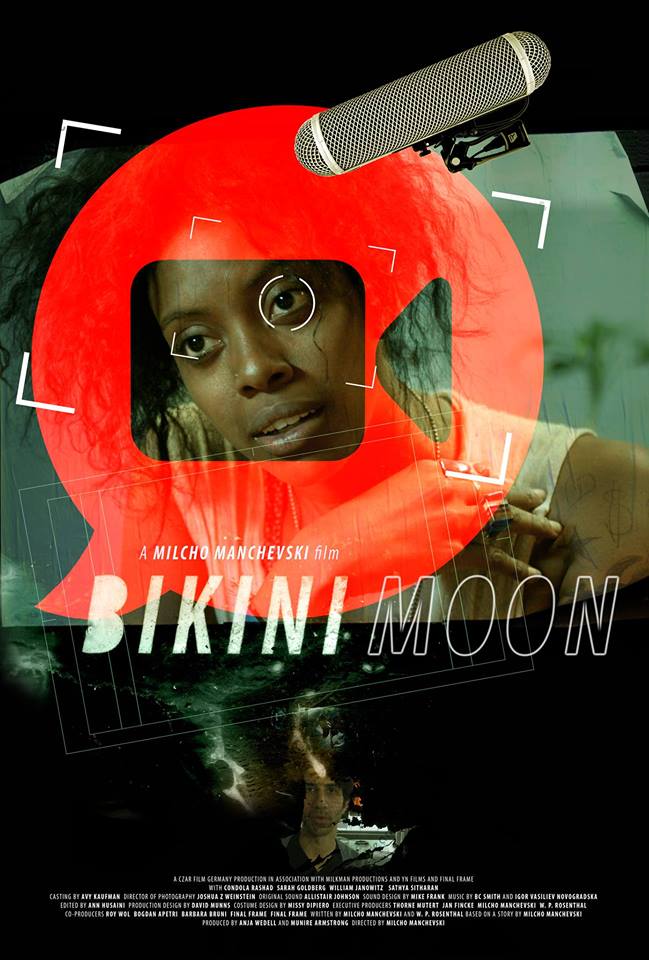
BIKINI MOON
“Milcho, provocative as always, makes the most ingenious and tough comment on the information society.”
(O Que Tem na Nossa Estante)
“Film director-philosopher.”
(O Que Tem na Nossa Estante)
“We are invited to doubt everything we see.”
(Adoro Cinema)
“Bikini Moon is a critique of the ideological dictatorship of reality shows and documentaries.”
(Omelete)
“Astonishingly brilliant.”
(Movie Gourmet)
“Provocative, multi-layered.”
(Metro)
“The viewer leaves the cinema both emotionally fulfilled and with a lot of food for thought.”
(Cineuropa)
“Complex in its structure, experimental in its execution, this is poetic resistance to mass media cinema.”
(Makfax)
“A brilliant auteur film… Positioned on the delicate line between fiction and documentary.”
(Cinema na Web)
‚Uncompromising, critical art… Disturbing.”
(Macedonian National Radio)
“Arresting meditation on the documentary filmmaking process… lively, thought-provoking Bikini Moon edges in and out of the experimental category. The film is smart with a cool New York irony”
(Hollywood Reporter)

MOTHERS
“Painfully beautiful.”
(Duma)
“Daring, provocative, controversial.”
(Rochester Democrat & Chronicle)
“Mothers opens up lines between documentary and fiction at the same time that it also blurs them. A special place in contemporary cinema.”
(Andrew Horton, Script)
“Manchevski gradually reveals the corruption and the failure of the Macedonian investigative and judicial system. *…+ Manchevski‘s esthetic experiment proves successful and confirms his extraordinary talent as a storyteller of images and moods, his skills in directing actors of every age and his ability to suggest hints instead of verifying theories”
(Giovanella Rendi, close-up.it)
“Mothers is a very strange film, sometimes sophisticated, poignant and often elliptical. One of the most interesting and original filmmakers of recent years. One of those authors who are not afraid to face the genres and to push the boundaries.”
(Diego Pierini, LoudVision)
“Mothers is an operation completely extraneous to the conceptual and aesthetic codes of contemporary cinema. Manchevski’s epic humanism finally returns.”
(CineClandestino.it)
“Mothers debunks the notion that documentaries can tell the truth.”
(Virginia Wright Wexman, Off screen)
“Mothers is a film about moral courage.”
(Zitty Berlin)
“Stylistically provocative.”
(Connor McGrady, Brooklyn Rail)
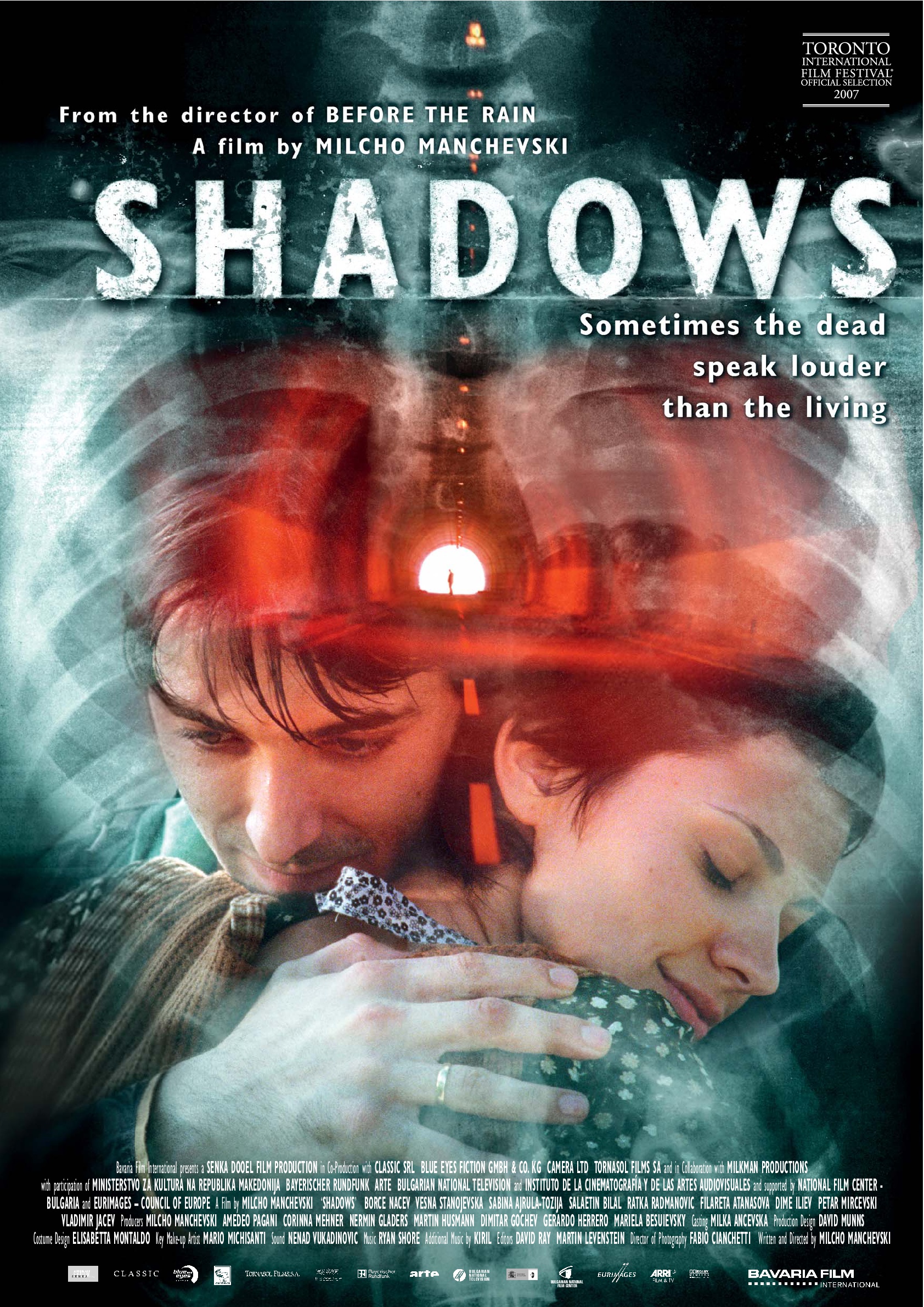
SHADOWS
“Shadows is a stunning and endlessly suspenseful erotic thriller. This mustsee artistry by director Milcho Manchevski leaves a magnetic imprint on the moviegoer”
(Omar P.L. Moore, The Popcorn Reel Film Review)
“‚Call it a ‘ghost story’, but know that it feels more like Bergman or Polanski, or even Shakespeare – Macbeth and Hamlet come to mind. *…+ To live through these moments in this setting allows for an uncanny intimacy – a faceoff with personal fear that leads, strangely enough, to a celebration of life.”
(Diane Sippl, Cinema Without Borders)
“SHADOWS’ style runs between hypnotic and frantic, which will surely set hearts racing. The film is unique in its ability to have a hand in multiple genres.”
(Joseph Woodard, Independent)
“A visual tale of dramatic substance, with historical depth and contemporary thrust, adroitly told with innovation and élan.”
(Diane Sippl, Cinema Without Borders)
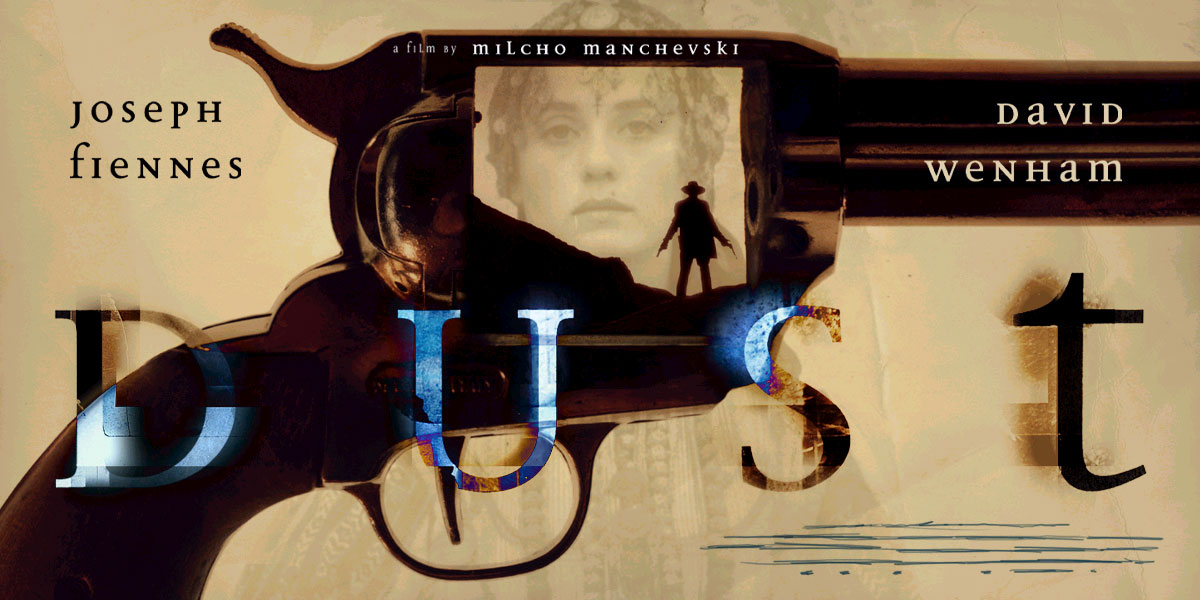
DUST
“Manchevski is a cubist of the silver screen.”
(The Globe and Mail)
“Rare visual intelligence.”
(Village Voice)
“A potent, assured and ambitious piece of filmmaking…There’s enough culture clash that Dust oesn’t need the equivalent of a Zen koan.”
(Elvis Mitchell, The New York Times)
“An extraordinary TransContinental, TransCentennial epic. Director Milcho Manchevski is a real original.”
(What’s On in London)
“Manchevski uses diverse characters and a fragmented narrative structure to create a mosaic in which the details of history are subjective, contradictory, and illusory, and recollections are repeatedly altered to suit the desires of the storytellers.”
(Roderick Coover, Film Quarterly)
“An investigation into the nature of storytelling, twisting and fracturing his narrative and using jarringly disjunctive images to pull the past and present into a Moebius strip of cruelty, retribution and hope of heaven.”
(Maitland McDonagh, TV Guide)
“High-end surreal western‛”
(stopklatka.pl)

BEFORE THE RAIN
“One of the greatest debut feature films in the history of cinema”
(Annette Insdorf)
“One of the most important films of the decade”
(Ann Kibbey)
“Working in a sophisticated, elliptical style, mr. Manchevski brings to his film an overwhelming vision.”
(Janet Maslin, The New York Times)
“One of the best 1,000 movies ever made”
(The New York Times)
“Director Manchevski has made a debut so astonishingly assured in writing and technique he is guaranteed a footnote in movie history even if he never makes another movie. Before the rain is stunning. It is the sort of remarkable debut that reinstalls faith in the movies as genuine art.”
(Miami Herald)
“A brilliant directorial debut. Work like this keeps me going. A reminder of the nobility that film can attain.”
(Roger Ebert)
“Stunning, often hypnotic… almost has the impact of a masterpiece… shakes you up… coming seemingly out of nowhere, it’s a movie that seems somehow fully formed, unshakably confident, the work of a filmmaker alive and inventive in every shot he takes.”
(Chicago Tribune)
“Powerful and passionate… Its greatness rests in the timeless truths of its narrative… Some of the most luminous close-ups since ingmar bergman discovered color… Together, the filmmakers and performers create scenes of such emotional opacity that at times we seem to be reading tiny fluctuations of the soul.”
(Dallas Observer)
“Macedonian masterpiece”
(Los Angeles Reader)
“Master from Macedonia”
(Outlook Rave!)
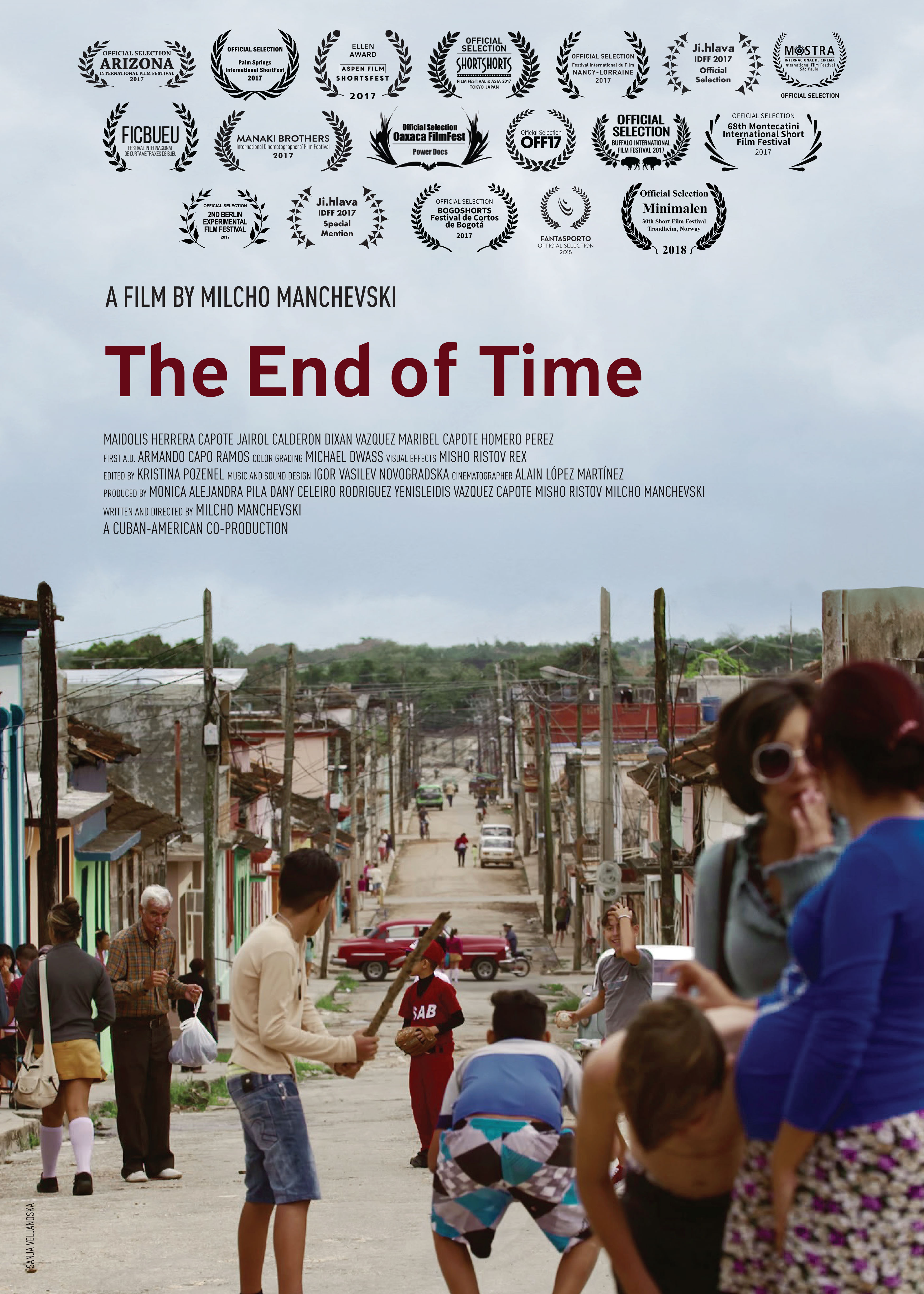
THE END OF TIME (SHORT FILM)
“Mesmerizing images […] Magnificent work”
(Kathleen McInnis, Aspen Shortsfest Film’s Director of Programming)
“A study of the everyday and the secret deliverance that lies waiting, while no one is looking. A celebration of interbeing and the flux of the same afternoon coursing through each of our bodies.”
(Dok.Revue, Mike Hoolboom)
“For the idea, the inexorable elegance and mathematical beauty with which the film constructs a lyrical study of the optical unconscious.”
(Best Editing Award at San Giò Verona Video Festival 2018)
“I love this film very, very much! […] Great genius in capturing the truth of the world in only two shots. […] Masterpiece.”
(Yoichiro Takahashi, director)
“End of Time takes a single, insignificant situation out of everyday life and shows it as a sacred moment by slowing down the rhythm for sharper vision. The film’s crisp minimalism and commanding simplicity is truly moving.”
(Award for Eperimental non narratives at Berlin Experimental Film Festival 2017)
“An impressive minimalist phenomenology of time, consciousness and selfhood.”
(Dejan Zdravkov, Philosophical Film Festival)